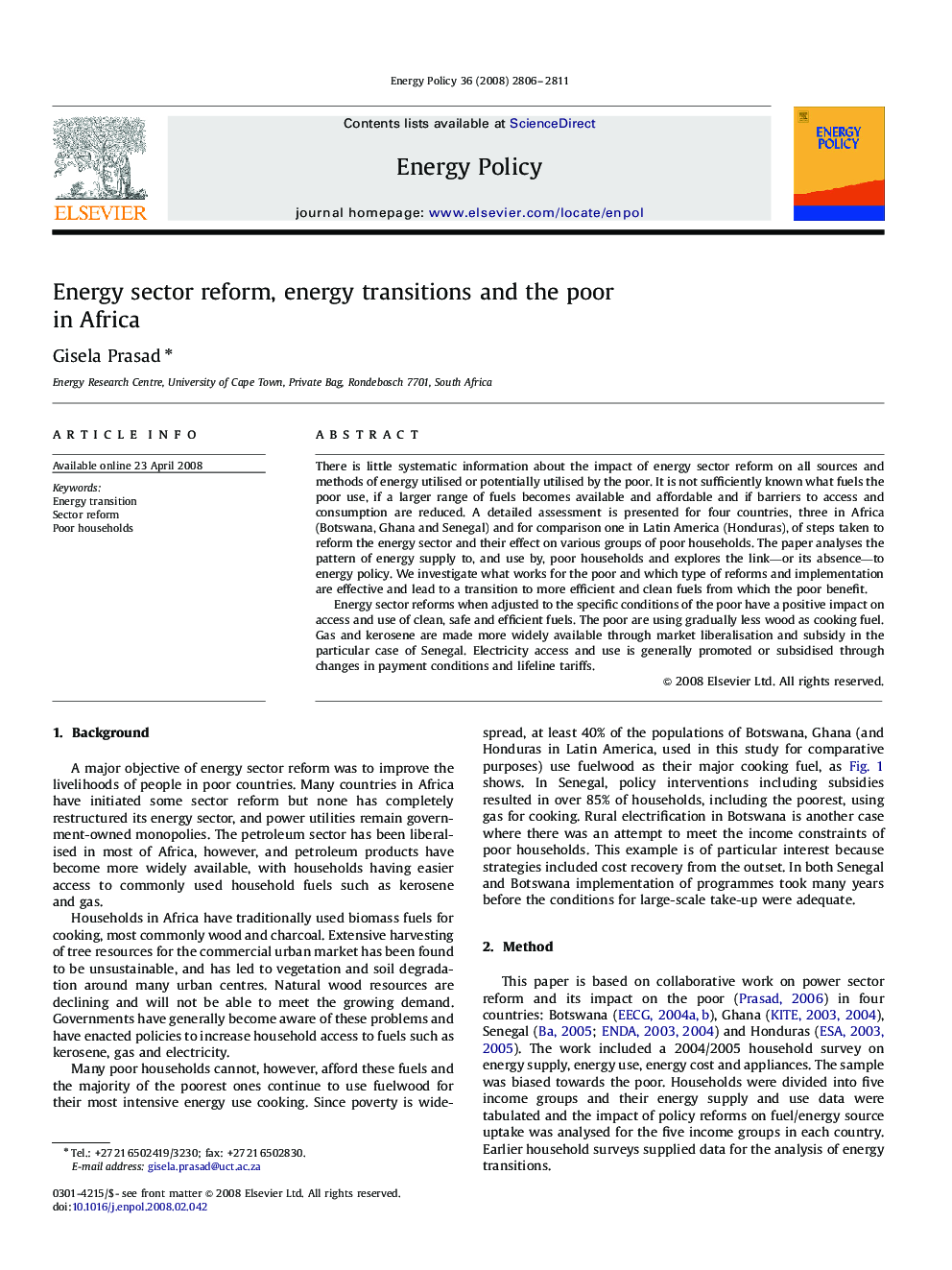| Article ID | Journal | Published Year | Pages | File Type |
|---|---|---|---|---|
| 997073 | Energy Policy | 2008 | 6 Pages |
There is little systematic information about the impact of energy sector reform on all sources and methods of energy utilised or potentially utilised by the poor. It is not sufficiently known what fuels the poor use, if a larger range of fuels becomes available and affordable and if barriers to access and consumption are reduced. A detailed assessment is presented for four countries, three in Africa (Botswana, Ghana and Senegal) and for comparison one in Latin America (Honduras), of steps taken to reform the energy sector and their effect on various groups of poor households. The paper analyses the pattern of energy supply to, and use by, poor households and explores the link—or its absence—to energy policy. We investigate what works for the poor and which type of reforms and implementation are effective and lead to a transition to more efficient and clean fuels from which the poor benefit.Energy sector reforms when adjusted to the specific conditions of the poor have a positive impact on access and use of clean, safe and efficient fuels. The poor are using gradually less wood as cooking fuel. Gas and kerosene are made more widely available through market liberalisation and subsidy in the particular case of Senegal. Electricity access and use is generally promoted or subsidised through changes in payment conditions and lifeline tariffs.
